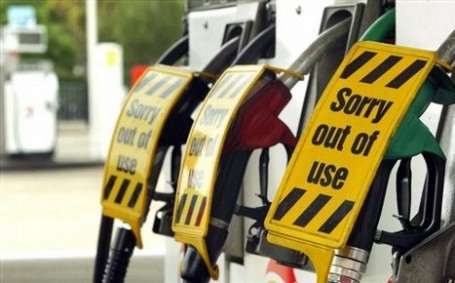It’s Official: Oil Will Peak by 2020
 These are turbulent times, no doubt. The unexpected seems to happen on an almost daily basis and what was deemed impossible just months ago now seems highly probable or even normal, whether we are talking financial crisis, falling currencies, or the price of oil.
These are turbulent times, no doubt. The unexpected seems to happen on an almost daily basis and what was deemed impossible just months ago now seems highly probable or even normal, whether we are talking financial crisis, falling currencies, or the price of oil.
But what about when we will reach peak oil? Another hotly debated topic, for years some have been arguing that peak oil is already upon is, with others saying we are years away from such a date. The conventional “bible” for many governments are the forecasts issued by the International Energy Agency (IEA).
For years, the IEA has ignored warnings from credible NGO’s and analysts that peak oil is fast approaching. Just three years ago, its executive director, Claude Mandil, labelled those who warned of peak oil as “doomsayers”. “The IEA has long maintained that none of this is a cause for concern,” wrote Mandil.
In its World Energy Outlook for last year, the IEA predicted a rate of decline in output from the world’s existing oilfields of 3.7% a year. But as we know a week can be a long time in politics and a year can be a lifetime in the oil industry. Who, for example, would have forecast the price volatility this year that has seen oil go from $147 to around $40 in six months?
Even so, in a quite amazing turnaround, the IEA now predicts that rate of decline as 6.7 per cent, meaning that oil will peak as early as 2020. In an interview with George Monbiot from the Guardian, Fatih Birol, chief economist to the IEA admitted that decline rates “were significantly higher” than before. Amazingly he admitted that this year they had done detailed research on a field by field basis and hence come up with the new figure. Before they had only ever done estimates. But that begs the question – why hadn’t they done this work before?
More importantly, it is significant in many ways. The IEA has never before forecast the exact date when peak oil might occur. And even 2020 is now likely to be over optimistic. Also the IEA is expecting that Canada’s dirty tar sands will take up the slack. So to keep the world economy turning we will fry the climate in the process. That is why the IEA is now admitting that we are on an “unsustainable energy path”.
And when the world’s energy watch-dog finally admits we are in trouble, you know that we are in trouble. There will be more turbulent times ahead.
